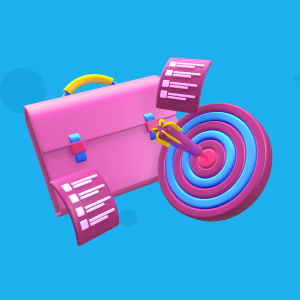70 20 10
Table of Contents
When people think of learning and professional development, they tend to see it as a monolith. Learning is just learning, isn’t it?
Well, there are different types of learning from various sources in a range of styles including self-directed learning, formal training, mentoring, learning from job experiences, and more.
For decades, educators, psychologists, and learning and development (L&D) professionals have been studying how these different forms of learning relate to each other and what is the optimal mix to include in a training program? One of the models researchers have developed to explain this unique balance is the 70:20:10 learning model.
In this guide, you’ll learn the theoretical background of this model, the pros and cons of using it, and how you can implement it in your organization for optimal learning outcomes. So, let’s all put our thinking caps on because things are about to get a little bit academic.
What is the 70:20:10 learning model?
The 70:20:10 learning model is an L&D theory that outlines how people learn effectively from three different sources. According to the model, learning comes from three different components:
- 70% comes through job experiences
- 20% occurs socially through friends and colleagues
- 10% comes through formal training
This model is important in fields like professional development because it tells those designing learning experiences how to optimize their learning strategies. Chiefly, it warns L&D professionals and company leaders that they can’t just rely on formal learning programs through online courses and lectures.
Instead, they need to include opportunities for informal learning, specifically relationships that yield insightful interactions and workplace challenges that allow learners to apply new knowledge through hands-on practice.
History of the 70:20:10 framework
The 70:20:10 framework was developed in the 19080s by researchers Michael Lombardo, Robert Eichinger, and Morgan McCall. In a study, they asked 200 executives to self-report how they believed they learned. The results were surprising: only 10% of learning could be traced back to formal training programs. The other 90% came from informal and experiential learning and social interaction.
The study revealed that hands-on, job-related experiences drive the most learning from daily tasks at work to learning from co-workers to having casual discussions that reveal useful insights.
Here’s how the researchers explain it themselves in The Career Architect Development Planner, a 1996 publication outlining the results of the study:
“The odds are that development will be about 70% from on-the-job experiences—working on tasks and problems; about 20% from feedback and working around good and bad examples of the need; and 10% from courses and reading.”
Over time, this framework became famous in the L&d field. It was further popularized in the 2000s by Jay Cross in his book Informal Learning.
Today, many organizations, such as the Center for Creative Leadership and the 70:20:10 Institute, advocate for this model and help companies apply it.
Advantages and disadvantages of the 70:20:10 model
Although the 70:20:10 model has been immensely useful in explaining how learners learn most effectively, like any other learning approach for e-learning and corporate training efforts, it has pros and cons.
Here are some of the advantages and disadvantages of applying the 70:20:10 model to employee development.
Advantages
- Empowers employees: Applying the 70:20:10 model gives employees more learning autonomy, which is very important for adult learners. Learning by doing gives a sense of self-determination and increases employee engagement.
- It’s practical: Focusing on experiential learning means that employees learn valuable new skills and ways to apply them instead of just boning up on theory. It’s a great way to increase learning agility and integrate learning into the work environment.
- It’s easy to implement: The 70:20:10 model relies on relatively simple training methods. You can get 20% of it just by facilitating social learning through social media groups, discussion forums through your learning management system, and mentoring. For 70% of job-related learning, you can assign new tasks to employees with a step-by-step guide.
Up next are the cons.
Disadvantages
- It doesn’t focus on formal training enough: Many L&D professionals argue that devoting only 10% to formal learning is insufficient. After all, there are many situations, such as in compliance training, where it’s necessary to grasp the rules and theory before implementing the skills.
- It’s challenging to evaluate it: Since much of this model relies on the learner’s personal experiences, it can be hard to test for effectiveness. Learning by doing, for instance, doesn’t lend itself easily to statistical metrics.
- It can easily be subverted: If you adopt the 70:20:10 model as an organizational guideline, there’s a chance that some of your managers can use it as an excuse for a lack of formal and direct training. After all, employees are supposed to learn on their own, aren’t they? This model supports many learning methods that can be challenging to manage and ensure proper knowledge is being transferred.
Criticism of the 70:20:10 learning model
Like any theory, the 70:20:10 learning model has had its share of criticism. Most of this concerns the lack of empirical evidence to back it up.
It’s important to note that the conclusions of the original study were based on asking participants to self-report what they felt were their learning sources. Self-reporting studies have some significant drawbacks and, in the case of the Lombardo study, the main problems are honesty, introspection, and sampling bias.
Firstly, when a study relies on what people say, they may not always be honest. They can give a reply that’s more socially acceptable instead of what they honestly think.
Secondly, there is a lack of consistent levels of introspection and self-reflection among participants. A person may genuinely believe they’ve learned everything independently while subconsciously downplaying the knowledge they got from others. There’s no way to test if their perception is correct or distorted by personal factors.
Lastly, the only people responding to the survey were executives who had already achieved success and that’s a sampling bias issue. What about how people at the beginning of their careers are learning?
While the 70:20:10 model offers valuable insights into the range of sources that provide useful knowledge, it would be a mistake to take it literally and apply it to every learner group.
How to implement the 70:20:10 model in L&D
Despite criticism, the model is still a helpful guideline and may be worth implementing.
To implement the model, you have to focus on its three components. So, let’s go in-depth into how to create opportunities for each type of learning.
70% from job experience
According to the 70:20:10 model, the central part of learning comes from hands-on experience that enables on-the-job learning.
You’d be forgiven for thinking you can do nothing to facilitate this as part of your employee development programs. Shouldn’t employees just pick up skills on their own?
That’s not exactly right. This experiential learning process is primarily self-directed, but companies can create conditions for it to happen and take steps to encourage it.
For instance, you can:
- Assign team members to new projects that slowly but surely increase the scope of their roles
- Give more decision-making authority when appropriate
- Include people in strategic leadership meetings
- Provide opportunities for an employee to manage other people and projects
- Provide opportunities for employees to try new things and experiment
Doing this will allow team members to broaden their roles and empower them to experiment with new ideas and ways to solve problems.
20% from social learning
As Lombardo and the other researchers called them, developmental relationships are nothing more than opportunities for people in your organization to share knowledge. Or in other words, it’s informal social learning.
Some of this will happen organically, but you can aid in creating those opportunities too.
Here’s how:
- Create mentoring programs where senior team members can coach juniors (you can also explore reverse mentoring as an alternative)
- Enable team members to get and give feedback regularly
- Encourage cross-functional collaboration
- Create a space for employees to vocalize thoughts and insights, like in-person meetings, brainstorming sessions, or virtual communication apps
- Make all perspectives welcome and encourage transparency
Most importantly, create a learning culture of free knowledge-sharing and open discussion of ideas. If you do online training, learning platforms like Docebo can help you. With social learning features like discussion groups, chats, and forums, online learners can interact and learn from one another.
10% from formal training
Even though, in this learning model, only 10% falls to formal training, it doesn’t mean you should be discouraged from offering it. Quite the opposite. Rather, focus on the quality rather than the quantity of formal learning.
One part of that is providing high-quality online learning content through your LMS (learning management system) platform, but there’s a lot more you can do:
- Organize webinars with internal subject matter experts (make sure there’s a Q&A portion)
- Share relevant content by industry experts and leaders
- Offer a learning stipend for employees to use on certification and career development classes
- Host seminars, workshops, and panel discussions
When developing job experiences, social learning, and formal training programs, it is crucial that all three formats create synergy. They must complement and balance one another to create an overall cohesive learning experience.
Now Over to You
The 70:20:10 model is a beneficial guideline for training and development experts. It describes how three different kinds of learning—experiential, social, and formal—come together to help learners achieve their goals and develop professionally.
For it all to be effective, the three sources of learning must be connected. For instance, when you give someone a new project to expand their role (on-the-job learning), give them access to other coworkers who can help them (social learning) and point them to relevant resources in your formal training program.
That may sound a bit complicated but with an LMS like Docebo, it doesn’t have to be. To talk with our experts about supercharging your L&D strategy, schedule a demo today. You can also visit Docebo’s glossary of terms to learn other strategies and techniques for creating a well-rounded training program.








